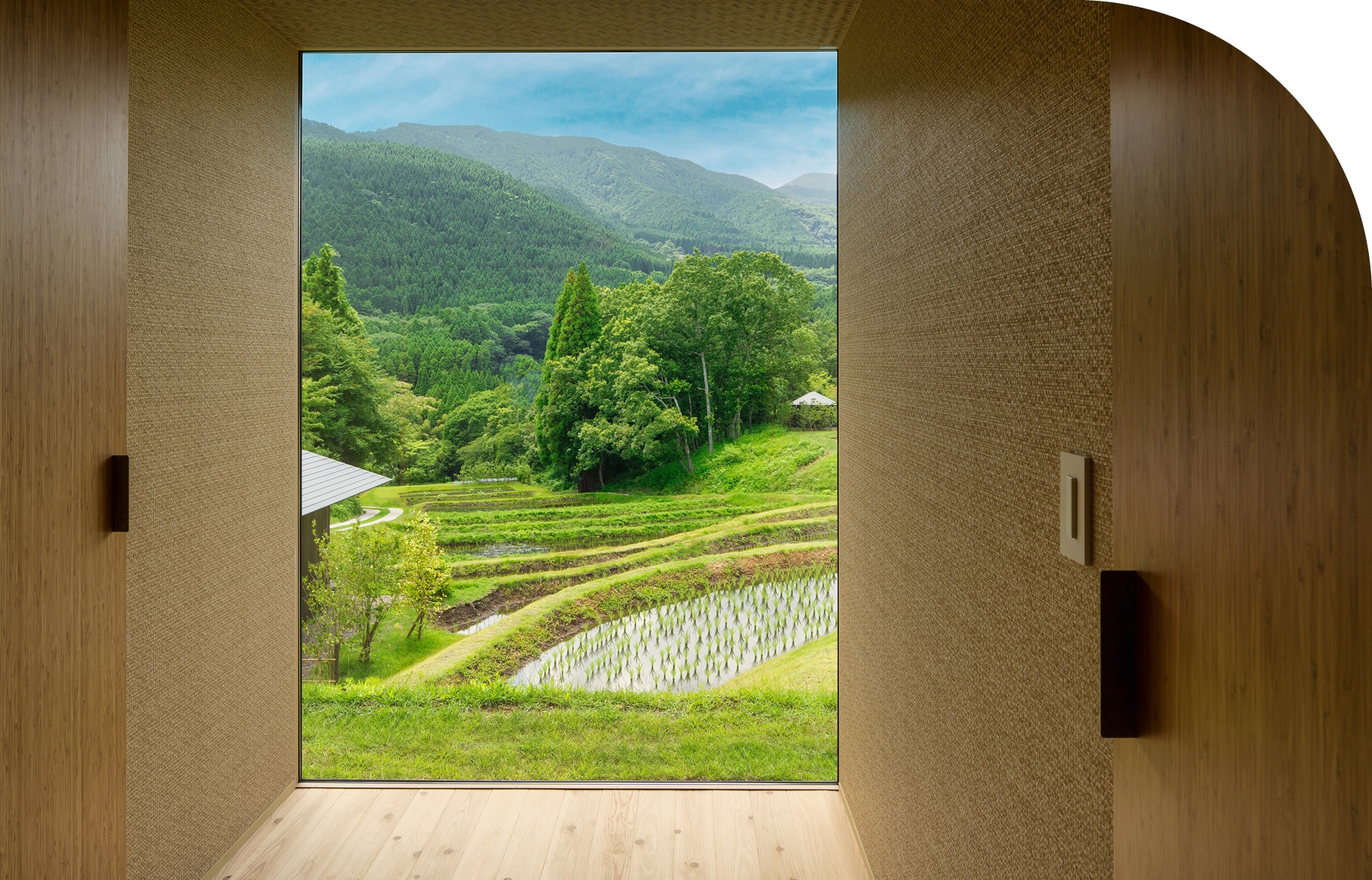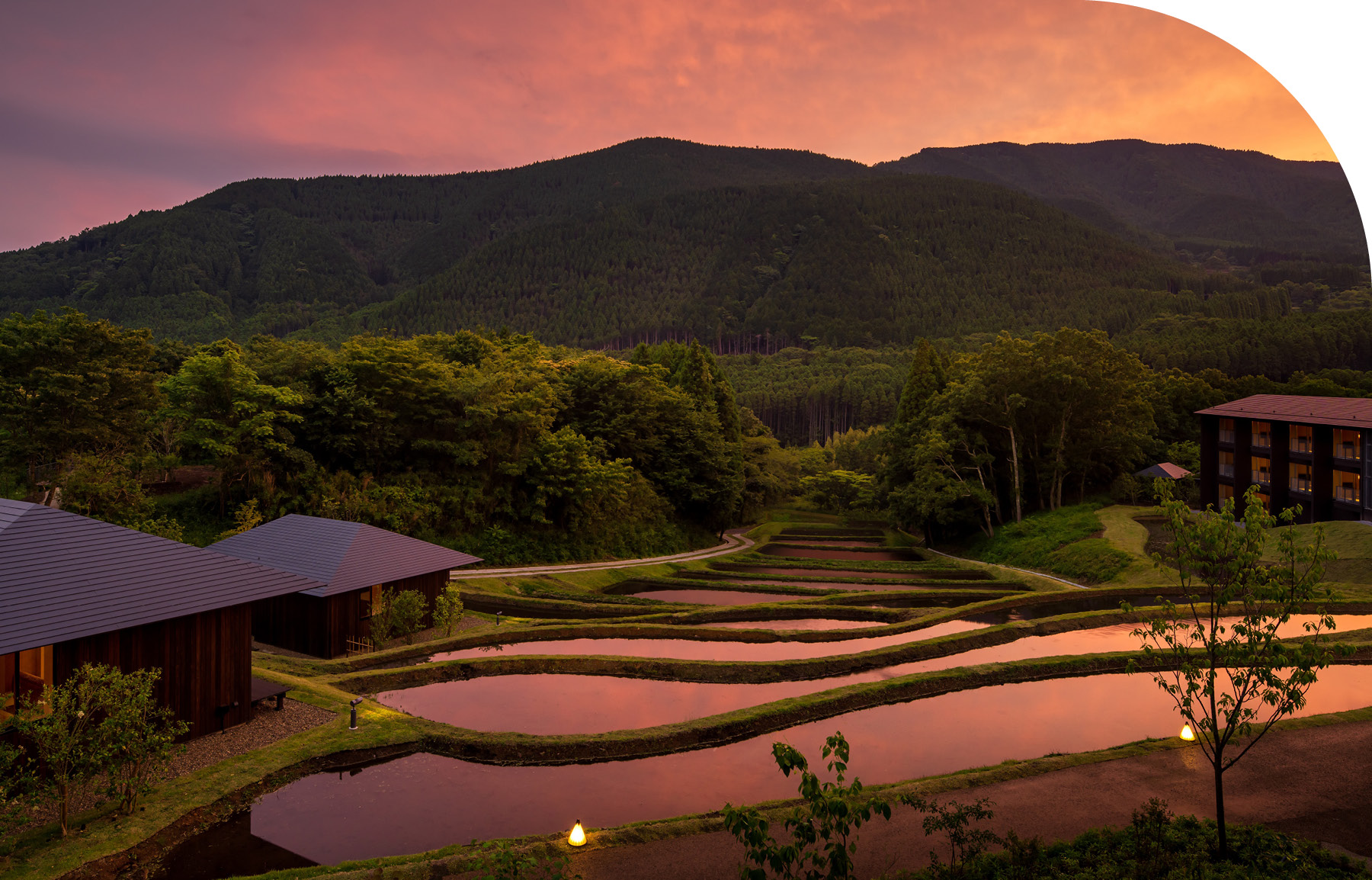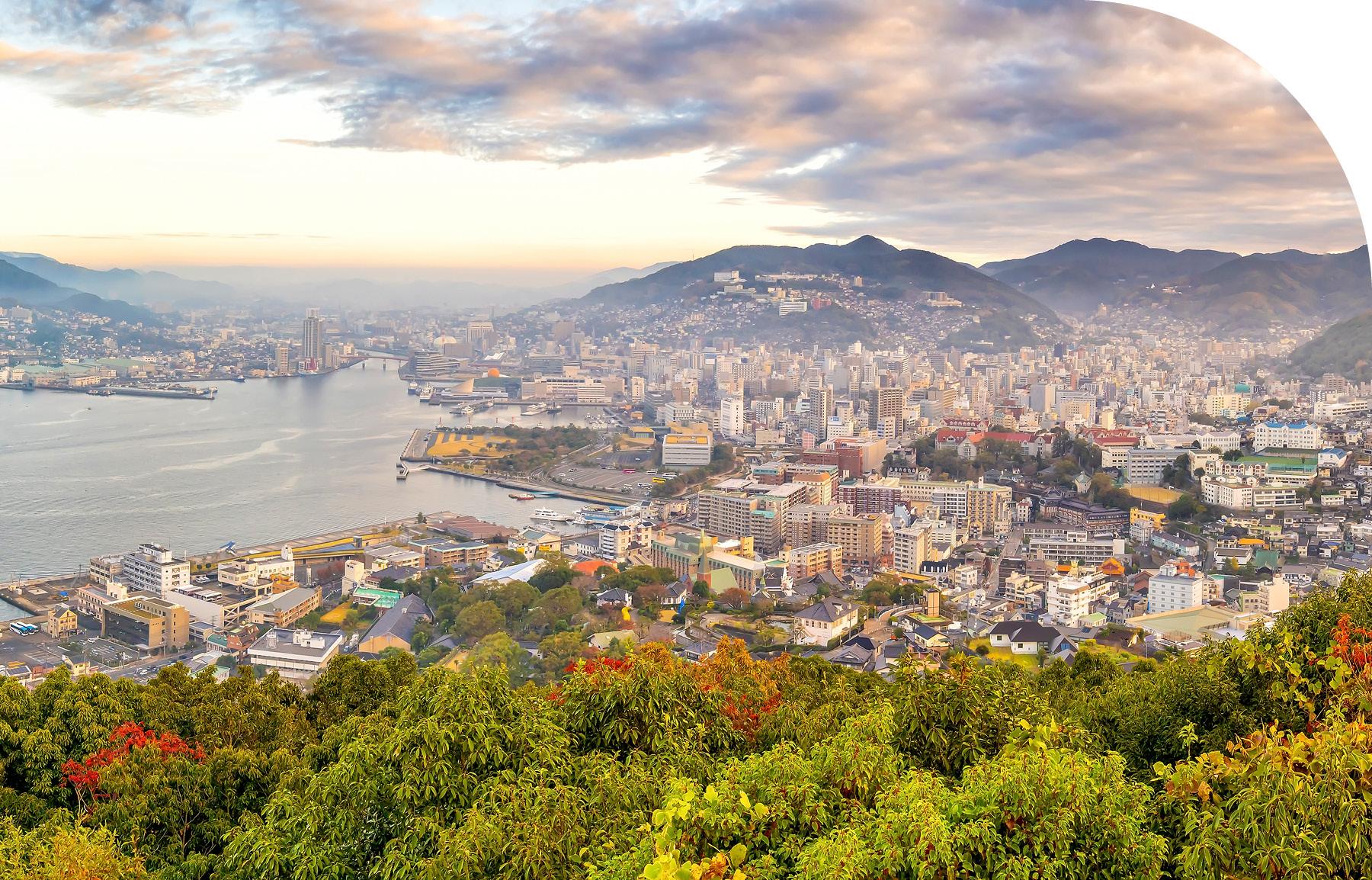
Stepping into the steaming water, I can hear the gentle rush of rapids in the stream below. Spotlights illuminate the last of the golden autumn leaves in the adjoining forest and stars twinkle overhead against a jet-black sky. Despite not being much of a bath person, I’ve come to enjoy the Japanese onsen ritual, and have bathed more over the past week than I have in years.
I stretch my arms out over a cool rock, waiting for the winter air to bring my body temperature down before dipping under the hot water again.
I’m in the ‘tayu-tayu’ hot spring at Miyama Sanso, a simple Japanese inn (ryokan) in Kurokawa Onsen. The tiny town is situated on the eastern side of Japan’s southern island of Kyushu, and it’s pretty and quiet, much like the rest of the island.

Image: Hoshino Resorts
A Peaceful Retreat
Kyushu is the antidote to the hustle and buzz of Tokyo. Often overlooked in favor of the popular sights on Honshu and the powdery snow of Hokkaido, the island is home to Fukuoka, one of Japan’s best food destinations renowned for its nightly food stalls (called yatai), high-quality green tea (gyokuro) and flavor-packed tonkotsu ramen.
Greater Kyushu brims with natural beauty and is known as the hot spring capital of Japan.
Arguably the most famous onsen town is the coastal city of Beppu in the Oita prefecture. From a high vantage point, such as the large open-air hot spring bath at the Suginoi Hotel, Beppu looks like a smoldering city that has been struck by a spray of meteors, as plumes of steam billow from the ground and swirl between buildings.
Beppu’s striking landscape is rivaled by that of nearby Yufuin, where throngs of happy snappers stroll the main street and ogle at the mountain views as my partner and I arrive by train from Fukuoka.
The crowds quickly thin, however, as our taxi winds three kilometers up the mountain to KAI Yufuin, a hotly anticipated Hoshino resort opened in August 2022 and designed by renowned Japanese architect Kengo Kuma.
Oita’s literal meaning, ‘grand rice field’, becomes apparent as we pass rows and rows of stepped rice terraces. These form the central feature of the hotel grounds, which are quietly watched over by the snow-dusted Mount Yufu (known as the Mount Fuji of Oita).
The spectacular setting is made even more impressive by the private outdoor hot spring bath outside our room, fed by the prefecture’s mineral-rich waters. (Are you starting to spot the theme?)

Image: Hoshino Resorts
Dramatic Landscapes
Kyushu’s enviable aesthetics are thanks to its volcanic landscape. We pass the stately Mount Aso, Japan’s largest active and climbable volcano, after hiring a car to explore some of the island’s more remote towns, including today’s destination: Takachiho.
This time, instead of climbing up, we wind down the mountain, along a road framed by a thick forest of red, orange and green. After parking, we stop to join a group of people standing on a narrow bridge and quickly see what all the fuss is about.
Below is Kyushu’s postcard image – a deep gorge, perfectly chiseled into dark gray basalt cliffs and cooled by a 17-meter-high waterfall. The vibrant green moss that clings to the sheer rock face adds a pop of color against the dark, teal water.
Visitors can paddle small row boats through the ravine, so we line up to join them. The outing becomes more amusing than peaceful, given the boats essentially become dodgem cars for tourists with little-to-no paddling experience, but the view from the water, gazing up at the Minainotaki waterfall, is stunning. But seclusion and equally impressive views can also be found walking along the elevated trail that follows the contours of the gorge.
Given Takachiho predominantly attracts day-trippers, it’s worth spending a night to see the town quieten to a hush come sundown. At the luxury Takachiho Ryokan Shinsen we drink sake made with Kyushu’s pure and soft water, and dine on kaiseki – a traditional Japanese dinner made up of 10 delicate courses, including lobster sashimi and Takachiho’s famous wagyu beef. The following morning we wake to exquisite views of the mountains.
Not just a pretty face, Takachiho is considered the birthplace of Japan in Japanese mythology and is where the story of sun goddess Amaterasu plays out. According to legend, Amaterasu hid in a cave and plunged the world into darkness until a group of deities lured her out through song and dance.
After rising early, we drive to the Amano Iwato Shrine, which leads to the cave where the goddess supposedly hid. In the morning fog, we follow a path through the forest along a rushing stream and reach the quiet cave, where a lone torii gate stands among hundreds of stones, stacked by visitors making a wish. The simplicity and serenity makes the early rise worth it.

A Train With a View
After arriving in Kashima in the Saga prefecture (known for its high-grade sake and Japanese ceramics), we leave the car behind to travel from Hizen-hama to Nagasaki on the new ‘Two Stars (Futatsuboshi) 4047’ sightseeing train, launched in September 2022.
The two stars refer to the number of prefectures crossed (Saga and Nagasaki), not the quality of the experience, and the train’s central lounge car is decorated with colorful tiles and intricate wall decals. The Futatsuboshi’s unveiling followed the ‘Seven Stars in Kyushu’ luxury sightseeing train that crosses all seven of the island’s prefectures.
Once again, the scenery steals the show as we click-clack along Kyushu’s western coastline, passing a blur of quiet farming villages and a perfect blue sea. When I step off the train, the cool air brushes my face, and I begin to look forward to whatever onsen experience awaits me.
Because in Japan, I’ve discovered, you can never have too many baths.
Where to Stay
Beppu Suginoi Hotel, Oita
KAI Yufuin, Oita
Miyama Sanso, Kurokawa
Akanesasu Hizenhamashuku, Kashima
Takachiho Ryokan Shinsen, Takachiho
Grand Hyatt Fukuoka, Fukuoka
Ritz-Carlton, Fukuoka (due to open in the second quarter of 2023)
For more information, see visit-kyushu.com/en.


